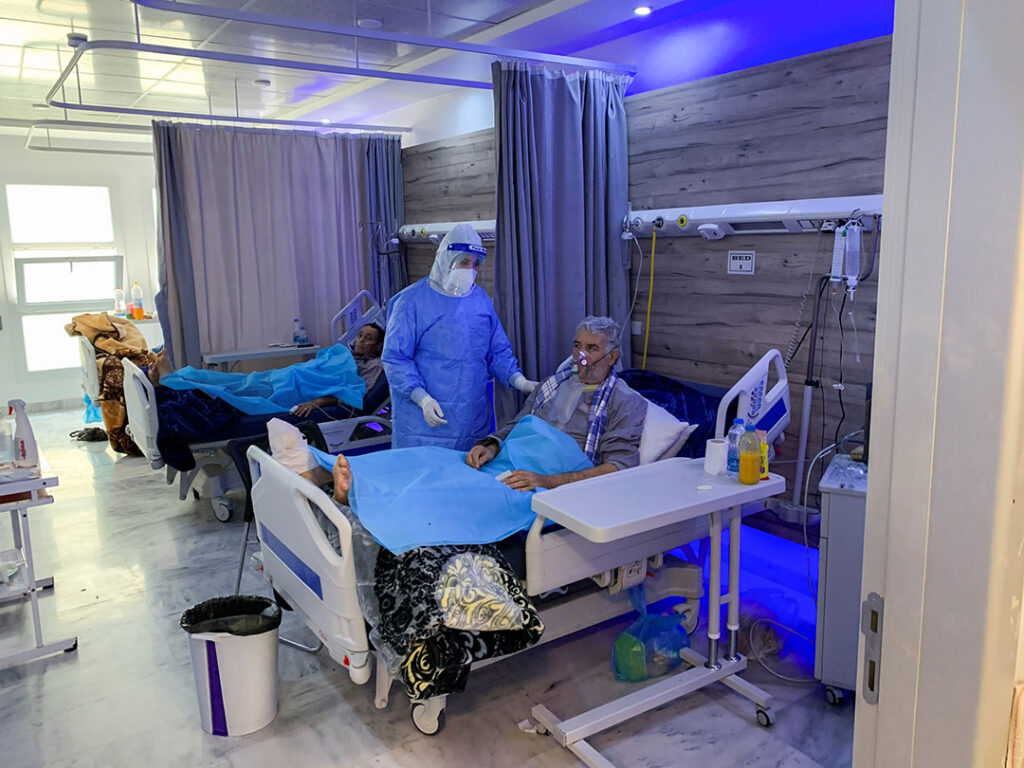ADF STAFF
The U.S. Agency for International Development (USAID) recently donated $2 million to Libya as the country dealt with a dramatic surge in COVID-19 cases and continued to grapple with humanitarian challenges posed by years of violence.
The money went to a UNICEF program that helps prevent transmission of the virus and offers basic health services to vulnerable populations. Through collaboration with the national Centre for Disease Control and Prevention, the program helps safeguard people living in migrant centers, health facilities, schools and jails in 24 municipalities.
In Libya, there are almost 402,000 internally displaced people and more than 1.3 million people who need humanitarian assistance, according to the United Nations, with many living in crowded camps and lacking basic health care, safe drinking water and food. Such conditions make it harder to practice social distancing and personal hygiene, which help prevent the spread of COVID-19.
To date, the U.S. has contributed more than $12 million toward Libya’s COVID-19 response.
“We are grateful to the people of the United States for their concrete early action in solidarity with the Libyan people and its children, who have been suffering for so much and so long, even before COVID-19 hit Libya,” Abdel-Rahman Ghandour, UNICEF special representative to Libya, said in a news release.
Stephanie Williams, acting U.N. envoy to Libya, recently told the U.N. Security Council that the country’s health system was “unable to respond” as the number of COVID-19 cases rose from a few hundred in August to nearly 20,000 in late September, Reuters reported.
The surge has placed a burden on health care workers like Hamza Abdulrahman Jelwal, a nursing supervisor at a quarantine center in Misrata, a large port city. Jelwal has not seen his family or been paid since March. When he tested positive for COVID-19 in August, he was quarantined at work. He was back on the job as soon as he recovered.
“We work 12 hours a day,” he told Reuters. “It is exhausting for medical staff because there is no rest.”
The spread of COVID-19 in Libya has not quelled violence between government forces and armed militias. The fighting killed nearly 150 civilians from January to June, with an 118% increase in deadly violence reported in the second quarter, according to the U.N. The first COVID-19 case was confirmed in Libya on March 24.
Between January and May, there were 20 reported attacks on health infrastructure, resulting in six deaths and damage to 13 health centers. Libya has reported more attacks on health infrastructure than any other country in the world this year, followed by Afghanistan and Syria, according to the U.N.
In August, Libya’s government announced a nationwide cease-fire, stirring hopes of peace after nine years of unrest. Fayez al-Sarraj, prime minister of the Government of National Accord, said the main objective was to establish “full sovereignty over the Libyan territory and the departure of foreign forces and mercenaries,” according to Al-Jazeera.
That has not happened.
“We have not yet seen cooperation from armed groups and the aggressive militias,” Al-Sarraj told the U.N. in late September.

